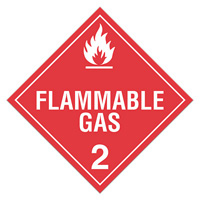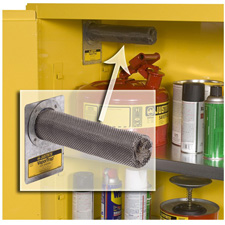| The Home page of ILPI's Safety Data Sheet (SDS) Resource, the leader in SDS information since 1995! | |
| The history and philosophy behind this resource. | |
| A curated collection of books and reference materials concerning Safety Data Sheets and closely related topics. | |
| Paste your plain text SDS into the SDS-Demystifier, and it will be converted into a hypertext-enriched document with links to detailed explanations of each key term. | |
| An extensive list of frequently asked questions about Safety Data Sheets including regulations, content, compliance, and more. | |
| A humorous take on Safety Data Sheet jargon. Fill in the blanks on our entry form to generate a personalized Unsafety Data Sheet to share with your coworkers. | |
| Since 1995, we've maintained this massive curated list of the best places to find Safety Data Sheets on the Internet. | |
| Way more than a glossary, this hypertext-enhanced resource covers hundreds of SDS-related terms and expert knowledge. Each entry includes both the SDS relevance and links to additional authoritative resources. | |
| Archived results of Safety Data Sheet related polls taken by some of our millions of site visitors | |
| You are here! The OSHA regulations behind SDS regulations, including the inspection guidelines and over 400 official interpretations letters under the Hazard Communication Standard | |
| Commercial suppliers of SDS authoring and management software as well as cloud compliance services. | |
| Commercial companies that will create SDS's for your specific needs as well as SDS translation companies. |

Safety signs, banners, and scoreboards? Get yours at Safety Emporium!
| Title: 12/22/1988 - Applicability of the HCS to diesel exhaust emissions and diesel fuel. | |
| Record Type: Interpretation | Standard Number: 1910.1200 |
December 22, 1988
Mr. Allen R. Schaeffer
Environmental Specialist
Engineering Department
American Trucking Associations
2200 Mill Road
Alexandria, Virginia 22314
Mr. Allen Schaeffer:

Be sure you're in compliance with DOT placards and labels from Safety Emporium.
This is in response to your letter of November 4, regarding diesel exhaust emissions and the Hazard Communication Standard (HCS) 29 CFR 1910.1200.
Our responses to your questions are numbered in the sequence in which they were posed.
Question 1: Are diesel exhaust emissions covered under the HCS? If so, please cite specifically the mechanisms which trigger coverage under the HCS.
Answer:No, diesel exhaust emissions per se are not covered by the HCS. Diesel fuel however is covered by the HCS and any known hazards associated with this fuel must be reported on the material safety data sheet, including the hazards associated with the combustion of the fuel.
Question 2: If the answer to (1) is yes, what obligations do motor carriers have with regards to training, labeling, and other provisions of the standard, specifically for diesel exhaust emissions?
Answer: All employers are required to develop and implement employee training programs regarding hazards of chemicals and protective measures for all employees exposed to hazardous chemicals in their work areas under normal operating conditions or in foreseeable emergencies. Employees in terminal operations exposed to hazardous chemicals would fall under these provisions. If employees in terminal operations are exposed to diesel fuel in their work areas, the hazards of diesel fuel must be incorporated in the training program. Trucks or other vehicles are not considered work areas for the purposes of the standard. Vehicle operators would not be covered while operating a motor vehicle, however operators would be covered while performing terminal operations.
The chemical manufacturer, importer, or distributor is responsible for labeling containers or diesel fuel. Employers are required to ensure that all containers of hazardous chemicals in the workplace are labeled. Engines, fuel tanks or other operating systems in a vehicle are not considered to be containers for purpose of the HCS and would require labeling.

Keep your workplace safe by using the VaporTrap™ Filter for VOC Vapors from Safety Emporium.
Question 3: If the answer to (1) is yes, who or which party is responsible for providing health hazard information on diesel exhaust emissions, such as material safety data sheets?
Answer: Manufacturers and importers of diesel fuel are responsible for performing the hazard determination and transmitting the hazard information of diesel fuel to their downstream customers. Employers are not required to evaluate chemicals unless they choose not to rely on the evaluation performed by the chemical manufacturer or importer for the chemical.
Question 4: If the MSDS are are required, but not available for the chemical manufacturer, what alternatives do motor carriers have for acquiring the MSDS?
Answer: Chemical manufacturers and importers are required to provide appropriate MSDS with their initial shipment and with the first shipment after a sheet has been updated. If the MSDS is not provided prior to or with the shipment, it is recommended that the employer write to both the supplier and the product manufacturer to request MSDS as soon as possible. Should the employer fail to receive the requested information, the nearest OSHA Area Office should be contacted for assistance in this matter.
We hope this information is helpful to you. If we can be of further assistance to you, please contact us again.
Sincerely,
Thomas J. Shepich, Director
Directorate of Compliance Programs
The original official public domain version of this document is available from OSHA at https://www.osha.gov/laws-regs/standardinterpretations/1988-12-22.